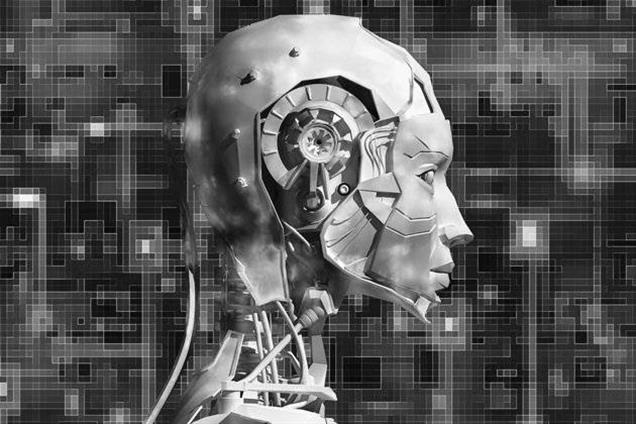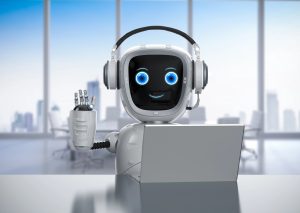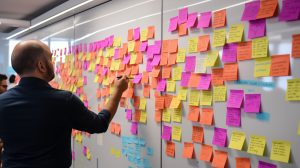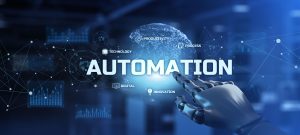
The reticular secretary is an impressive-sounding name for a filter which ensures that your brain doesn’t have to deal with more information than it can handle.
Whether you are aware of it or not, your brain normally filters out superfluous information, that is not relevant to you, or it does not have any emotional charge.
This phenomenon of filtering superfluous information is controlled by a small part of your brain called RAS (Reticular Activating System). RAS decides for you what you see and what you miss.
I guess my RAS wasn’t that tuned to the future until I joined Dublin Technology Leaders Meetup organised by Mark Kelly and listened to Ade McCormack talk on Business Strategy in the Digital Age. What an eye-opener.
My RAS has suddenly woken up and alerted me to the article below. I have no idea who wrote it, so I cannot give them the credit they deserve. The article echos Ade’s words of warning –
The Digital Age is upon us and although it is technology driven, it is not about technology. The world is changing. Business Models are changing. The nature of work is changing. Value generators are changing.
Ade McCormack
Some real-life examples below.
Artificial Intelligence
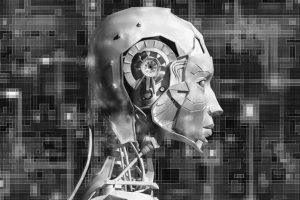 Computers become exponentially better in understanding the world . This year, a computer beat the best Go-player in the world, 10 years earlier than expected. In the US, young lawyers already don’t get jobs. Because of IBM’s Watson, you can get legal advice (so far for more or less basic stuff) within seconds, with 90% accuracy compared with 70% accuracy when done by humans.
Computers become exponentially better in understanding the world . This year, a computer beat the best Go-player in the world, 10 years earlier than expected. In the US, young lawyers already don’t get jobs. Because of IBM’s Watson, you can get legal advice (so far for more or less basic stuff) within seconds, with 90% accuracy compared with 70% accuracy when done by humans.
So if you study law, stop immediately. There will be 90% less lawyers in the future, only specialists will remain. Watson already helps nurses diagnosing cancer, its 4 times more accurate than human nurses.
Facebook now has a pattern recognition software that can recognize faces better than humans. By 2030, computers will probably become more intelligent than humans.
Autonomous Cars
In 2018 the first self-driving cars have appeared in public. Around 2020, the complete industry will start to be disrupted. You will not want to own a car anymore. You will call a car with your phone, it will show up at your location and drive you to your destination. You will not need to park it, you only pay for the driven distance and can be productive while driving. Our kids will never get a driver’s licence and will never own a car.
It will change the cities, because we will need 90-95% less cars for that. We can transform former parking spaces into parks. 1.2 million people die each year in car accidents worldwide. We now have one accident every 60,000 miles (100,000 km), with autonomous driving that will drop to 1 accident in 6 million miles (10 million km). That will save a million lives each year.
Most car companies will probably become bankrupt. Traditional car companies try the evolutionary approach and just build a better car, while tech companies (Tesla, Apple, Google) will do the revolutionary approach and build a computer on wheels.
Many engineers from Volkswagen and Audi are completely terrified of Tesla. Insurance companies will have massive trouble because, without accidents, the insurance will become 100x cheaper. Their car insurance business model will disappear. Real estate will change.
Because if you can work while you commute, people will move further away to live in a more beautiful neighbourhood. Electric cars will become mainstream about 2020. Cities will be less noisy because all new cars will run on electricity.
Energy
Electricity will become incredibly cheap and clean. Solar production has been on an exponential curve for 30 years, but you can now see the burgeoning impact. Last year, more solar energy was installed worldwide than fossil.
Energy companies are desperately trying to limit access to the grid to prevent competition from home solar installations, but that can’t last. Technology will take care of that strategy.
With cheap electricity comes cheap and abundant water. Desalination of salt water now only needs 2kWh per cubic meter (@ 0.25 cents). We don’t have scarce water in most places, we only have scarce drinking water. Imagine what will be possible if anyone can have as much clean water as he wants, for nearly no cost.
Health
The Tricorder X price could be announced this year. There are companies who will build a medical device (called the “Tricorder” from Star Trek) that works with your phone, which takes your retina scan, your blood sample and your breath into it. It then analyses 54 biomarkers that will identify nearly any disease. It will be cheap, so in a few years, everyone on this planet will have access to world-class medical analysis, nearly for free. Goodbye, medical establishment.
3D printing
The price of the cheapest 3D printer came down from $18,000 to $400 within 10 years. In the same time, it became 100 times faster. All major shoe companies have already started 3D printing shoes. Some spare aeroplane parts are already 3D printed in remote airports. The space station now has a printer that eliminates the need for the large number of spare parts they used to have in the past. At the end of next year, new smartphones could have 3D scanning possibilities. You can then 3D scan your feet and print your perfect shoe at home.
In China, they already 3D printed and built a complete 6-storey office building. By 2027, 10% of everything that’s being produced will be 3D printed.
Business opportunities
If you think of a niche you want to go in, first ask yourself: ” Do I think we will have that in the future,?” and if the answer is yes, how can you make that happen sooner? If it doesn’t work with your phone, forget the idea. And any idea designed for success in the 20th century is doomed to failure in the 21st century.
Work
70-80% of jobs will disappear in the next 20 years. There will be a lot of new jobs, but it is not clear if there will be enough new jobs in such a short time. This will require a rethink on wealth distribution.
Agriculture
There will be a $100 agricultural robot in the future. Farmers in 3rd world countries can then become managers of their field instead of working all day on their fields. Aeroponics will need much less water. The first Petri dish produced veal, is now available and will be cheaper than cow produced veal in 2018. Right now, 30% of all agricultural surfaces is used for cows. Imagine if we don’t need that space anymore.
There are several start-ups who will bring insect protein to the market shortly. It contains more protein than meat. It will be labelled as “alternative protein source” (because most people still reject the idea of eating insects).
There is an app called “moodies” which can already tell in which mood you’re in. By 2020 there will be apps that can tell by your facial expressions, if you are lying. Imagine a political debate where it’s being displayed when they’re telling the truth and when they’re not.”
The FUTURE is closer than you think. Are you ready?

